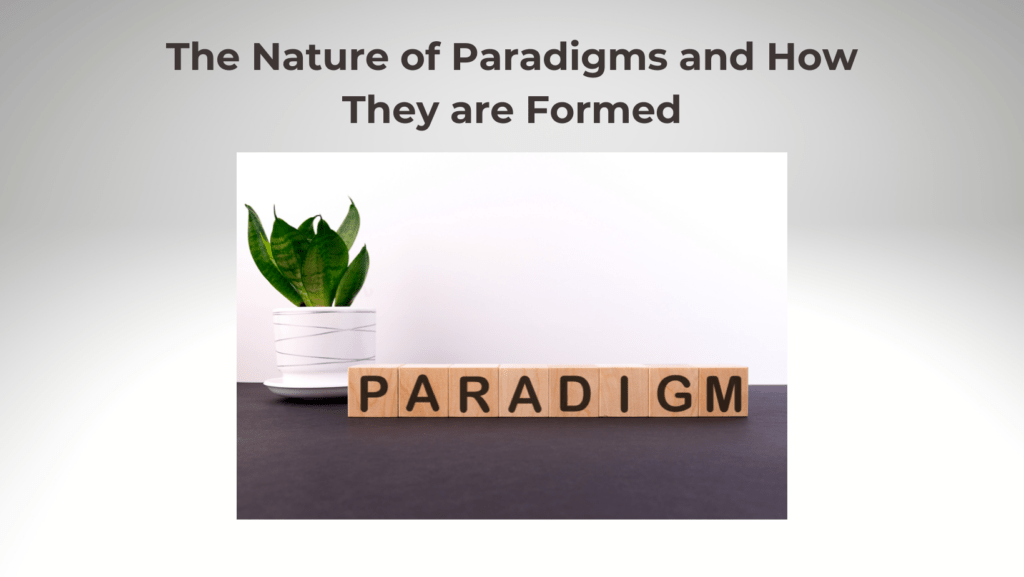
THE NATURE OF PARADIGMS AND HOW THEY ARE FORMED
What is a Personal Paradigm?
Personal paradigms are the lenses through which we see the world, shaping our understanding of how we live in it. Paradigms are guidelines
A personal paradigm is comprised of not only your belief system that has these issues within it but also your needs and goals. Combined, these create your success strategies for taking the actions that result in the outcomes of solving the issues.
There’s only one problem—it doesn’t work for you anymore, and your mindset is stuck—there’s no alternative.
What Creates a Paradigm?
Paradigms form from several places; your environment is one of them. Humans, by design, need protection, and herein lies the nature/nurture equation. The nurture part of this equation is powerful.
Paradigms are shaped by many years of experience and what our parents, teachers, friends, and the world have taught us. Because these teachings are so deeply rooted, it can be problematic for you to recognize when you’re stuck in a paradigm that no longer serves you. Even if someone calls it to your attention, you may deny it as it can be invisible and locked in place.
Your Responses from Hearing “I Want a Divorce” May Have Originated from Your Paradigm
Paradigms are reinforced throughout your lifetime; repetition is the most transparent and straightforward way. Maybe you grew up in a household where it was forbidden or frowned upon to divorce. From as far back as you can remember, no one in your family ever even considered it an option. All you heard and knew growing up was that when you marry, it’s forever.
The paradigm could also be repeated in your culture; for example, divorce is illegal in the Philippines and the Vatican. In the Islam faith, it is a last resort, and in Hinduism, it was forbidden until the Hindu Marriage Act of 1955, and like Catholicism, marriage is a sacrament. However, the latter doesn’t believe in divorce and considers it a sin.
Getting divorced is a failure; you’re a failure, and you don’t know how to get out of this problem.
Other Ways Paradigms are Reinforced
Repetition is the most obvious way a paradigm is reinforced, but there are other ways it happens, and confirmation bias is one of them. Staying with the idea that if you divorce, you’re a failure, you may have heard that through other sources, such as the media or data research.
Confirmation bias involves preferring information that confirms your beliefs (or biases). An example would be meeting two new people, one who is married and the other divorced. You would place greater importance on the 
Paradigms are also reinforced by a preference to choose friends who agree with you and the desire for comfort. When there’s no conflict, you can relax and be at ease with the patterns you’ve taken on.
Along with the belief that you’re a failure if you get a divorce, you may also believe that everyone abandons or rejects you, life isn’t fair, you are nothing without a spouse, etc.
Paradigms are the lens through which you see the world and hold onto them because they work and they’re comfortable. Creating an alternative paradigm requires a shift in perspective, which may seem overwhelming to you or too much work.
“Paradigms are powerful because they create the lens through which we see the world.” ~ Steven Covey
What does your world look like?


